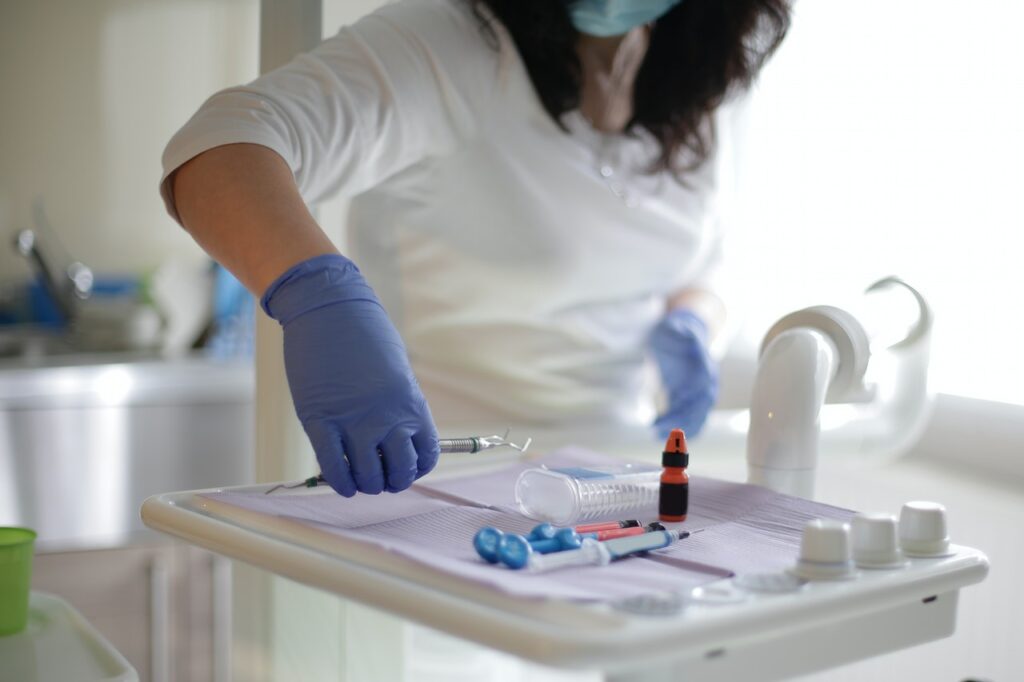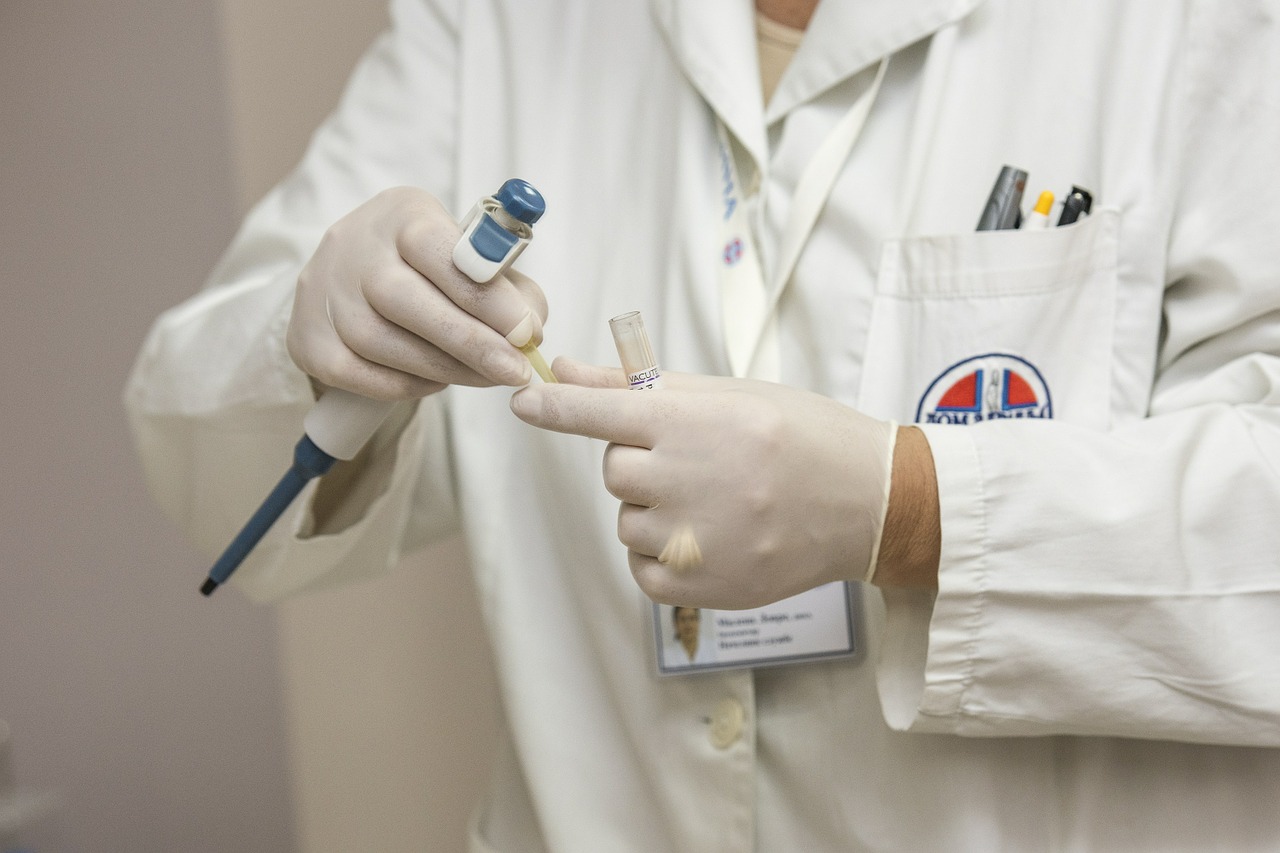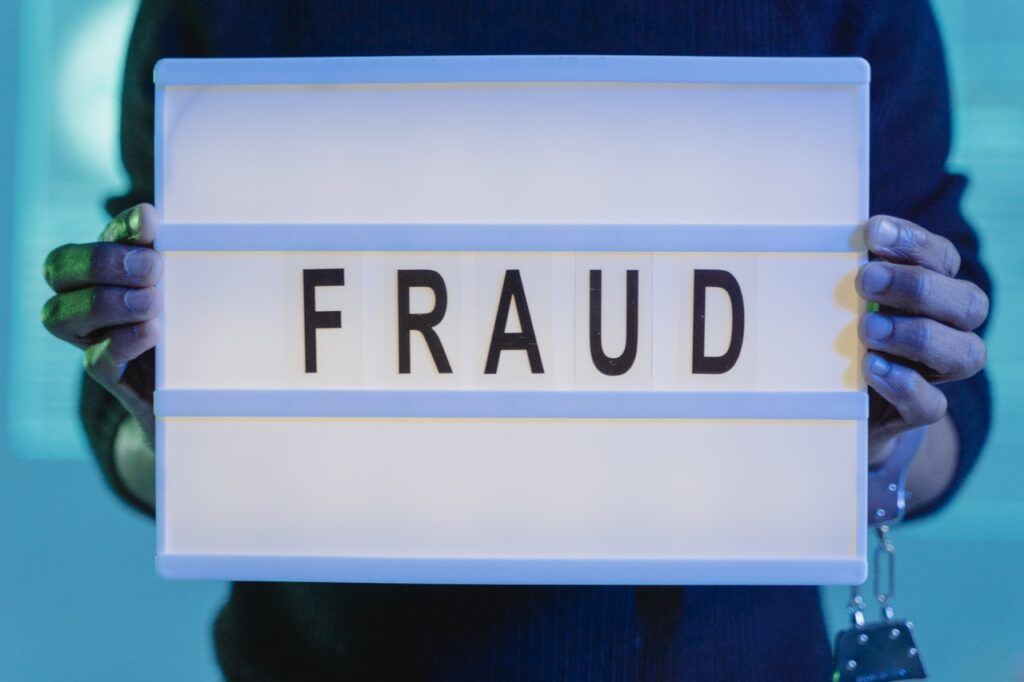

SME-Healthcare Fraud, False Claims Act, Antikickback, Financial Forensics/Accounting, Healthcare litigation, long-term care, skilled nursing facilities, medicare issues, medicaid issues, medicare advantage, commercial mayors, other government mayors, expert in working with providers of all types.
| Robert Church | Points |
|---|---|
| Academic | 0 |
| Author | 20 |
| Influencer | 0 |
| Speaker | 0 |
| Entrepreneur | 0 |
| Total | 20 |
Points based upon Thinkers360 patent-pending algorithm.
 Owners of Two Dallas-Area DME Companies Face 25 Years in Prison after Guilty Verdict in Federal Court
Owners of Two Dallas-Area DME Companies Face 25 Years in Prison after Guilty Verdict in Federal Court
Owners of two durable medical equipment companies in the Dallas area were convicted by a federal jury recently for their role in health-care fraud.
The companies faced charges of conspiracy to defraud the United States, paying and receiving health care kickbacks, as well as conspiracy to commit money laundering.
Michael Hagen, 54, and Leah Hagen, 49, of Arlington, Texas, were the owners of two DME companies. Both Ortho Pain Solutions LLC and Metro DME Supply LLC operated out of the same Arlington location.
According to trial evidence, the defendants were able to pay a flat rate for each DME item in exchange for prescriptions and paperwork that were completed by telemedicine doctors. The paperwork was then used to submit fraudulent claims to the Medicare program.
In addition, they paid bribes, kickbacks, and wired money to the call center owned by the co-conspirators in the case. Those people were in the Philippines and provided doctor's orders that were signed for orthotic braces.
The Hagens exchanged emails with their co-conspirators that showed a pricing structure based on each brace, but they also discussed the agreement as designed for other services and marketing.
The defendants were alleged to have billed Parts B and C of Medicare roughly $59 million. They received roughly $27 million from the scheme. Then, they wired the proceeds from these sales into personal bank accounts located in the United States as well as overseas.
The Hagens will face a maximum sentence of 25 years in prison for their crimes.
Tags: Health and Safety, Health and Wellness, HealthTech
 Virginia-Based Family Medical Practice Agrees to $2.15 Million Settlement for Violating False Claims Act
Virginia-Based Family Medical Practice Agrees to $2.15 Million Settlement for Violating False Claims Act
A Virginia-based company recently agreed to a $2.15 million civil settlement with the state attorney general of and the U.S. Attorney's office.
Allergy and Asthma Associates Inc., based in Roanoke, will pay the money after allegedly billing Virginia Medicaid and Medicare programs more than $600,000 for asthma treatments it either never purchased or administered in an improper way to their patients.
The medical practice that is family owned pleaded guilty in Roanoke's U.S. District Court back in June of 2020 to one criminal count of health-care fraud.
Court documents say that between January of 2010 and September of 2017, the company submitted billings to both Medicaid and Medicare. The improper billings were for Xolair, which is a single-use asthma treatment that is quite expensive.
Because of the drug's nature, many patients need to receive doses with the help of health-care providers administering only part of the vial. This, in turn, leaves unused leftovers of Xolair that the provider doesn't administer to the patient.
Rules under Medicaid and Medicare sometimes allow for providers of the drug to bill Medicaid and Medicare Part B once for a full vial of the drug. This would include the quantity that was administered to the patient as well as the amount that had to be discarded. The two must add up to the amount that's listed on the label of the vial.
What AAA allegedly did was take the leftover Xolair that they had and then administer it to other patients. The company then billed both Medicaid and Medicare for administering the amounts as if they were the full vial, rather than what was used and what was left over.
In the time period alleged, the company billed $627,540 to Medicare for Xolair it never purchased. From Medicaid, the company also received 129 vials of the medication but didn't document it as ever being used for a patient on Medicaid. That resulted in a reported loss of nearly $89,000 for Medicaid.
The total sum that AAA will pay as part of the settlement of claims that they violated the federal false claims act is roughly $2.15 million. Roughly $1.99 million of that will go to the federal government, while a little more than $154,000 will go to the Commonwealth of Virginia.
Tags: Health and Safety, HealthTech, Mental Health
 Former Administrator at Sister Facility of Brighton Rehabilitation and Wellness Center in Pennsylvania Indicted for Role in Fraud Conspiracy
Former Administrator at Sister Facility of Brighton Rehabilitation and Wellness Center in Pennsylvania Indicted for Role in Fraud Conspiracy
A 60-year-old former administrator of a rehab and wellness center has been indicted for charges that include health care fraud, defrauding the United States and obstruction of a federal audit.
The investigation into Susan Gilbert, the former administrator at Mount Lebanon Rehabilitation and Wellness Center, is still ongoing. If convicted of all charges, she could face up to 10 years in prison as well as a fine of $250,000. Mount Lebanon is a sister nursing home to Brighton.
A joint investigation by the U.S. Attorney's office as well as the Pennsylvania Attorney General's led to the charges before a federal grand jury.
The allegations are that Gilbert directed various employees to falsify company records so it would look as if the facility met both state and federal staffing requirements.
The indictment alleges that between October 2018 and February 2020, Gilbert led a conspiracy that defrauded Pennsylvania of both property and money. She impaired, impeded, obstructed, interfered with and defeated the governmental functions of the U.S. Department of Health & Human Services in its administration of Medicaid, as well as the Pennsylvania Medicaid program.
She is also alleged to have obstructed the work of a federal auditor as well as committing health-care fraud.
Gilbert was the administration of Mount Lebanon, a skilled nursing home in Allegheny County, Pennsylvania. The facility is part of a larger company that owns various long-term care facilities in the state, which includes the Brighton Rehabilitation and Wellness Center.
According to the indictment, Gilbert and her co-conspirators directed nursing staff at the management and administrative level to "clock in" for shifts they didn't actually work. This led to the company creating falsified timecards, making it appear the individuals were providing direct care to residents when they weren't even in the building.
Those involved include general administrative staff, the assistant director of nursing, and the director of nursing. The staff was coerced into conspiring with Gilbert because they were given monetary bonuses for doing so.
In addition to clocking in for hours they didn't work, the staff was also instructed not to clock out for lunch breaks, which were 30 minutes. They then falsified timecard sheets that were provided to the Department of Health & Human Services.
Gilbert instructed administrative staff to maintain two books that reflected levels of staffing -- one that was accurate with the actual hours worked and one with the falsified information. The falsified book was provided to investigators at the DOH when they conducted inspections that were mandated by federal law.
Gilbert is alleged to have done this with her co-conspirators so the facility would look as if it complied with all conditions for participating in the Pennsylvania and federal Medicaid programs.
One condition is the facility must have "sufficient" nursing staff on hand to meet the needs of residents. Another is the facility was able to operate and provide services that complied with all state, local and federal codes, laws and regulations.
Tags: Health and Safety, HealthTech, Mental Health
 Tennessee Man Will Spend 3 Years in Prison for Role in Federal Health-Care Fraud
Tennessee Man Will Spend 3 Years in Prison for Role in Federal Health-Care Fraud
A 59-year-old Tennessee man was sentenced to three years in federal prison recently for his role in a federal health-care fraud scheme.
Michael Dube, the former owner and operator of American Toxicology Labs, received his sentence in Virginia U.S. District Court. He had pleaded guilty to two separate felony charges of health-care fraud. One charge was in the Kentucky’s Eastern District while the other was in Virginia’s Western District.
Court documents said that in March of 211, Dube had pleaded guilty to a charge omitting information intentionally from reports that are required by the Controlled Substances Act. That charge was filed in Tennessee’s Eastern District.
Because of the conviction in that case, Dube couldn’t participate in any federal health-care program. The Department of Health and Human services informed him of this restriction in a letter they sent him in June of 2012.
Even still, Dube and his wife Regan opened American Toxicology Labs in Tennessee in May of 2013. Regan served as the registered agent for the company, and the couple used their home address for the mailing address and principal office.
After establishing the practice, the couple completed applications to participate in Medicaid and Medicare. Those applications listed Regan Dube as the owner of the company, while Michael’s name, and participation in the company, was completely omitted from the application.
American Toxicology Labs conducted urine screenings for multiple entities that said they were opioid treatment facilities. Payments totaling roughly $8.5 million were made to the company between May of 2014 and January of 2020 from Virginia Medicaid, TennCare, Kentucky Medicaid and Medicare.
In this timeframe, Michael negotiated with providers, made decisions regarding employment and participated in the general management of the company.
In addition, Michael received kickbacks from companies for referring patients to those other companies for various services. Payment for those services was given by federal health-care programs, either in full or in part.
A total of $441,646 in these kickbacks was deposited into the personal checking account of the Dubes. Regan had been previously convicted and then sentenced for her role in the scheme.
As a result of the two convictions, the Dubes will pay more than $9 million plus interest. It will divided among fines, forfeiture, restitution and special assessments. All money the couple received from Medicaid and Medicare will have to be re-paid.
Tags: Health and Safety, Health and Wellness, HealthTech
 Medical Tech Company Agrees to Multi-Million-Dollar Settlement after Self-Reporting Fraud
Medical Tech Company Agrees to Multi-Million-Dollar Settlement after Self-Reporting Fraud
As part of a recent settlement agreement, Bioventus LLC will pay more than $3.6 million to the government. The global medical technology company was accused of violating the False Claims Act. According to the U.S. Attorney’s North Carolina office, Bioventus was accused of submitted CMNs, or certificates of medical necessity, that were completed improperly for devices that weren’t medically necessary. The alleged incidents took place between October 1, 2012, and December 31, 2018.
Officials from Bioventus self-disclosed the incidents to the Office of Inspector General at the U.S. Department of Health and Human Services. The case was eventually transferred over to the Middle District of North Carolina office of the U.S. Attorney’s office.
The self-disclosure happened in November 2018. Company officials disclosed they discovered that some of its sales representatives would sometimes complete Section B of a CMN for devices the company produced called Exogen. However, law stipulates that Section B has to be completed by either a physician’s office or a treating physician.
The company then conduct a review of the supposed claims, verifying medical records that would support the claim of medical necessity for the devices.
Government officials said Bioventus cooperated fully with the investigation following their self-disclosure.
The special agent in charge for the Department of Health and Human Services, Derrick Jackson, commented:
“Medicare rules on medical necessity are enforced to protect patients and the integrity of this federal health care program. We encourage providers to voluntarily disclose evidence of potential fraud, as in this case, to resolve these matters.”
HHS-OIG provides a way for enrollees of Medicare to self-disclose any evidence they find of possible fraud. It even has a portal and framework that describes how to disclose, coordinate, evaluate and resolve suspected fraud instances involving any health-care program at the federal level.
Tags: HealthTech
 Managers at Arch Family Dentistry in Indiana Charged with Healthcare Fraud
Managers at Arch Family Dentistry in Indiana Charged with Healthcare Fraud
Two managers of an Indiana family dentistry practice have been charged with one count of healthcare fraud. According to an unsealed indictment from a Grand Jury, 34-year-old Justyn Arch and 31-year-old Trystan Arch, who are from Valparaiso, are facing the charge in the case.
Court documents say the two defendants created a scheme designed to defraud the Indiana Medicaid program. The two created fictitious and false entries in various patient files. The entries showed that dentists at their practice, Arch Complete Family Dentistry, performed patient dental surgery.
That supposed surgery never happened, though. In total, the scheme resulted in false claims in excess of $350,000 being charged to the Indiana Medicaid program.
As of October in 2017, Justyn Arch was managing the practice’s office in Crown Point. He also serves as vice president for the practice. At that time, Trystan Arch served as the manager of the practice’s office in Chesterton.
The practice also briefly had an office in Knox.
The indictment is an allegation of a crime taking place, according to the U.S. Attorney’s Office. All people are presumed to be innocent unless they are found guilty in a court of law.
If the defendants were found guilty, the judge in the case would impose the sentence. The judge would consider guidelines outlined in the federal sentencing program as well as various federal statutes to make his or her determination.
Philip C. Benson, an assistant U.S. Attorney, is prosecuting this case.
The investigation was a joint effort conducted by local and federal authorities, including the FBI and the IRS.
Tags: HealthTech
 One of the Most Chronic Conditions Today Is the Major Depressive Disorder (MDD)
One of the Most Chronic Conditions Today Is the Major Depressive Disorder (MDD)
According to Buzi, Smith, and Weinman (2014), one of the most chronic conditions today is the major depressive disorder (MDD). As per the U.S department of health and human services, 8% of the U.S. population aged between 12 to 17 years had at least one MDD episode in 2010. The researchers also found out the rate of mental illness among individuals who are 18-25 years was twice as high in comparison to the rate of mental illness among elderly individuals aged 50 years and above.
Additionally, males were found to experience more persistent depressive symptoms from adolescence into adulthood than females, with Non-Hispanic African American males having the highest rates of MDD at 13.2%, followed by Hispanics or Latinos (12.7%) and lastlynon-Hispanic whites (8.7%). However, despite the fact that males suffer from depression, just like females, very few male individuals seek mental help because of the pressure conceal weaknesses as well as their vulnerabilities.
A place where males have an opportunity to seek mental help is a family planning clinic that provides access to reproductive health services to males. However, because research on males' mental health needs in these settings is scant, Buzi, Smith, and Weinman (2014), used this setting to assess depression among 535 Hispanic and African American males aged between 14 and 27.
An association exists between depression in males and socio-demographics as well as between depression in males and services they request that are related to relationships, their feelings, physical issues as well as well-being.
Firstly, the research study included 535 participants who were mainly African American and Hispanic Young males who attended a family planning clinic. Participants were recruited by the researchers during their visit to the clinic on male designated days. The overall sample size reflected 61% of the males who were seen at the clinic during the study period. The researchers obtained informed consent from all the participants before data was collected. Additionally, to protect the confidentiality of participants involved in the research study, every participant had to complete the questionnaire in a private room. Data obtained was analyzed using the chi-square test.
The researcher used a diverse group of participants in their research. Firstly, as highlighted above, the research study included African Americans (66%) and Hispanic (34%), young males. 92.2 percent of the participants were single, while only 31 percent were fathers. 46.6 percent of participants were in school, and 67.2 percent had graduated high school or were in college. Lastly, a total of 196 participants were employed, and 124 had health insurance.
The dependent variable in the study is depression. Participant's depression levels were measured using the Center for Epidemiologies Studies Depression Scale (CES-D). This variable was measured on an ordinal level of measurement since participants were asked to rate items such as
Depressed mood, feelings of hopelessness, feelings of worthlessness, loss of appetite, poor concentration, and sleep disturbance, and possible scores ranged from 0 to 60, with higher scores indicating more severe depressive symptoms.
The two independent variables in the research study were, participant’s sociodemographic characteristics such as their ethnicity, school status, age, marital status, employment status as well as fatherhood status as well as service requests from participants that included services to assist with relationships, health screenings, anger management, employment, as well as education. The two independent variables were measured on a nominal scale since they had no quantitative value associated with them.
Chi-square analyses were used by the researchers to determine if an association existed between depression and sociodemographic characteristics because these variables are categorical variables. The results indicated that Hispanic males were more depressed than African American males. Additionally, depressed males requested services related to STD prevention, getting along with family and partners, getting a job, working out, eating well, testicular cancer, college applications/loans, as well as emergency contraception.
The researchers concluded that an association exists between depression and a person’s race. They also asserted that depression is also associated with the type of services requested by young minority males attending a family planning clinic.
Tags: Health and Wellness, HealthTech
 Elements of Effective Compliance Plans for Healthcare Businesses
Elements of Effective Compliance Plans for Healthcare Businesses
Tags: Health and Safety, Health and Wellness
 Fraud and Abuse in Federal and State Healthcare Programs - Much More Than Money
Fraud and Abuse in Federal and State Healthcare Programs - Much More Than Money
Tags: Health and Safety, Health and Wellness
 COVID-19 Fraud: Schemes Being Perpetrated and Their True Costs to the United States
COVID-19 Fraud: Schemes Being Perpetrated and Their True Costs to the United States
Tags: COVID19
 The 10 Most Common Fraud Schemes That Have Arose from COVID-19
The 10 Most Common Fraud Schemes That Have Arose from COVID-19
To date, COVID-19 fraud has cost Americans approximately $200,000,000, while over $30B in stimulus funds have been distributed. These numbers are reported by the FTC and the U.S. Secret Service. Unfortunately, there is no end in sight, and projections reflect no meaningful change for at least another 12 months.
Tags: COVID19